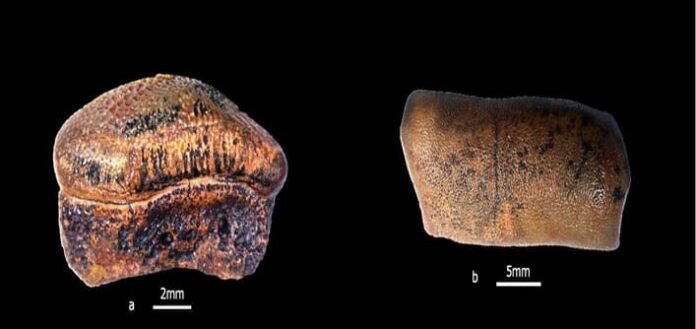Hybodont Shark, a new specie of Jurassic era discovered from Jaisalmer in Rajasthan.
In a rare discovery, teeth of new species of hybodontshark of Jurassic age have been reported for the first time from Jaisalmer by a team of officers comprising Krishna Kumar,Pragya Pandey, Triparna Ghosh and Debasish Bhattacharya from the Geological Survey of India (GSI), Western Region, Jaipur.
This finding has been published in Historical Biology, a Journal of Palaeontology of International repute, in its August, 2021, 4th issue. Prof. Dr. Sunil Bajpai, Head of the Department, Department of Earth Sciences, Indian Institute of Technology, Roorkee, who is a co-author of this publication, played a significant role in the identification and documentation of this important discovery.
According to Krishna Kumar, Senior Geologist, Palaeontology division, Western Region, “Hybodont sharks have been reported for the first time from the Jurassic rocks (approximately, between 160 and 168 million-years-old) of the Jaisalmer region of Rajasthan. Hybodonts, an extinct group of sharks, was a dominant group of fishes in both marine and fluvial environments during the Triassic and early Jurassic time. However, Hybodont Sharks started to decline in marine environments from the Middle Jurassic onwards until they formed a relatively minor component of open-marine shark assemblages. Hybodonts finally became extinct at the end of the Cretaceous time 65 million years ago.
Significantly, the newly discovered crushing teeth from Jaisalmer represent a new species named by the research team as Strophodusjaisalmerensis. The genus Strophodus has been identified for the first time from the Indian subcontinent and is only the third such record from Asia, the other two being from Japan and Thailand. The new species has recently been included in the Shark references.com, an international platform operating in association with International Union for Conservation of Nature (IUCN), Species Survival Commission (SSC), and Germany.
This discovery marks an important milestone in the study of Jurassic vertebrate fossils in the Jaisalmer region of Rajasthan, and it opens a new window for further research in the domain of vertebrate fossils.


